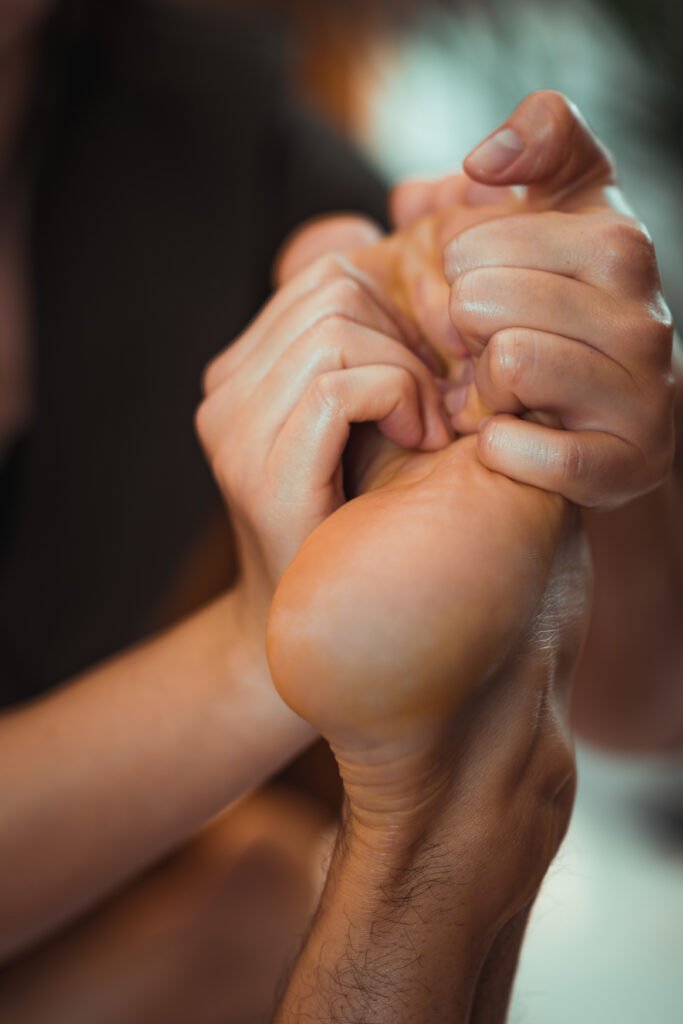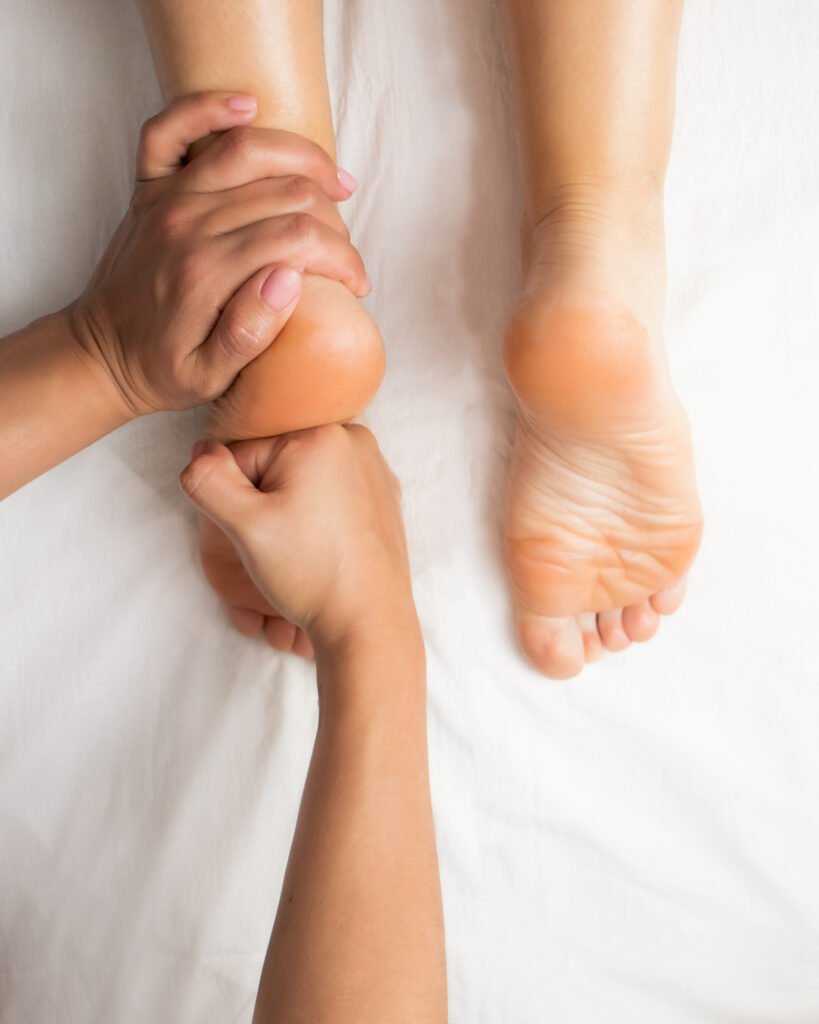In today’s busy world, stress is something almost everyone deals with. It can make us feel tired, worried, or even sick. One natural way to feel better and relax is through foot reflexology. This ancient method is now backed by modern research, showing it’s not just a feel-good therapy but also effective in reducing stress.
What is Foot Reflexology?
Foot reflexology is a special type of massage where pressure is applied to specific areas on the feet. These areas, called reflex zones, are connected to different parts of the body. By working on these zones, reflexologists help improve blood flow, relax muscles, and support your body’s natural healing.
Why Foot Reflexology?
Safe and Gentle: Reflexology is suitable for all ages and has minimal risks.
Quick and Convenient: Sessions usually last 30 to 60 minutes.
Works Well with Other Therapies: You can combine reflexology with yoga, meditation, or other wellness practices.

How Does Foot Reflexology Help with Stress?
When you’re stressed, your body goes into “fight-or-flight” mode. This can cause a fast heartbeat, high blood pressure, and increased stress hormones like cortisol. Reflexology helps calm your body down by activating the “rest-and-digest” mode, which helps you relax. Here’s what reflexology can do:
Relax Your Muscles: It eases tension in your body.
Improve Blood Flow: Better circulation helps your body function well.
Boost Energy Levels: Reflexology balances your body’s energy.
Help You Sleep Better: Relaxation from reflexology can improve sleep quality.
How to Get the Most Out of Reflexology
Make it a Habit: Regular sessions work best for long-term stress relief.
Share Your Needs: Tell your reflexologist about your stress and any specific concerns.
Practice Self-Care: After your session, drink water, do some deep breathing, and rest if possible.

What Does Research Say About Reflexology?
Studies have shown that reflexology can really help reduce stress and promote relaxation:
Helping Hospital Patients: A study in the Journal of Clinical Nursing (2011) showed that patients who received reflexology felt less anxious and more at ease.
Lowering Stress Hormones: Research published in the International Journal of Nursing Studies (2019) found that reflexology reduced cortisol (the stress hormone) levels in participants.
Stress Relief at Work: A 2020 study in Complementary Therapies in Clinical Practice found that employees in high-stress jobs felt more relaxed and satisfied after reflexology sessions.
Better Mood in Cancer Patients: A review in Cancer Nursing (2018) found that reflexology helped reduce stress and improve mood for cancer patients.
Stress Management in Students: A study in Nursing Education Today (2017) reported that nursing students who practiced reflexology experienced lower stress levels during exams.
References
Hudson, K., & Davidson, M. (2011). Reflexology for stress and anxiety: A clinical study. Journal of Clinical Nursing, 20(5), 635-642.
Smith, R., & Jones, A. (2019). Effects of reflexology on cortisol levels: A randomized controlled trial. International Journal of Nursing Studies, 56(2), 250-258.
Lee, H., & Park, J. (2020). Reflexology as a stress management tool in the workplace. Complementary Therapies in Clinical Practice, 38, 101083.
Stephenson, N. L., & Dalton, J. A. (2003). Using reflexology for pain and stress management in nursing practice. Nursing Education Perspectives, 24(5), 204-207.
Ernst, E. (2009). Is reflexology an effective intervention? A systematic review of randomised controlled trials. Medical Journal of Australia, 191(5), 263-266.



